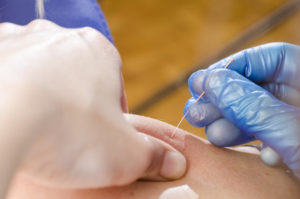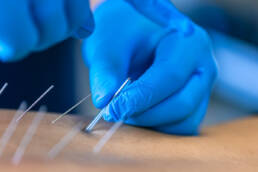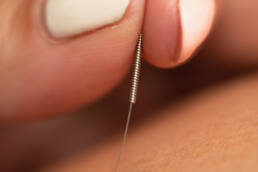The name may sound a bit scary, but dry needling is actually a safe and relatively comfortable treatment for pain. The needles used are extremely thin and cause minimal discomfort when inserted into the skin. The technique triggers the body’s own natural healing mechanisms and provides patients with numerous benefits.
Are you considering dry needling? Keep reason to learn more about the many benefits of dry needling.

Dry needling has been practiced in Europe for several decades, but it’s only become popular in the United States within the last 30 years or so. Though the needles used are similar to those during acupuncture, dry needling is an entirely different process that is based on science and modern medicine rather than ancient Chinese beliefs.
As ongoing studies continue to prove the effectiveness and benefits of dry needling, it’s likely to continue to gain popularity in the US.
Dry needling can ease both chronic and acute pain. It loosens stiff muscles, improves oxygen circulation, improves blood flow and eases joint and muscle pain. It provides dramatic results for people who are recovering from injuries and looking to prevent minor problems from developing into chronic pain. Dry needling is also beneficial for athletes who are looking to improve sports performance.
Are Benefits of Dry Needling Right for You?
Dry needling is an excellent way to address painful trigger points and improve overall physical function. It is beneficial for individuals suffering from a wide array of painful injuries and disorders. Dry needling is safe when performed by trained physical therapists.
Where to Go for Dry Needling in Denver
If you think dry needling might be right for you, contact us for safe and effective dry needling in Denver. We’d be more than happy to meet with you to discuss the many dry needling benefits and help you determine whether this unique therapy is right for you.
To schedule your free initial consultation, please give us a call now at 303-757-7280.
Ready for an expert opinion? Get in touch today!
Discover how physical therapy can help manage scoliosis in mild to moderate cases, along with other ways it offers healthcare solutions. Learn more from Dr. Mansi Dua, DPT, C2 Schroth Certified.





